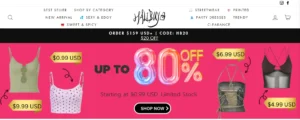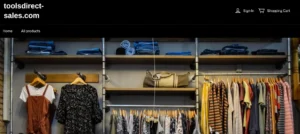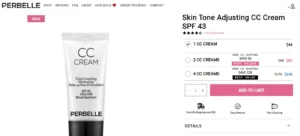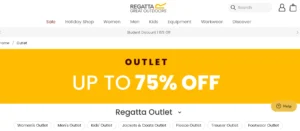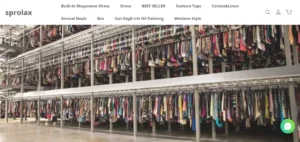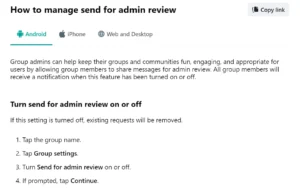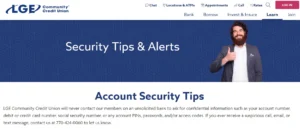In recent months, a fraudulent scheme known as the Nike Lucky Clearance Carnival Scam has been targeting unsuspecting shoppers on Facebook. This scam preys on individuals seeking discounted Nike products, promising enticing discounts of up to 85-90% off.
Scammers employ various deceitful tactics to lure victims, such as creating fake websites that closely resemble official Nike outlets and employing fake ads on social media platforms.
This article delves into the details of the Nike Lucky Clearance Carnival Scam, providing essential tips to help individuals avoid falling victim to this fraudulent scheme.
The Fake Discounts: How Scammers Entice Shoppers With Unbelievable Savings
With promises of extravagant discounts and unbelievable savings, scammers entice shoppers into their trap through the deceptive allure of the Nike Lucky Clearance Carnival scam. These scammers offer fake discounts of up to 85-90% off on Nike products, exploiting people's desire for a good deal.
By setting up fake websites that resemble official Nike outlets and using fake ads on social media platforms, scammers create an illusion of legitimacy. The impact on Nike's brand reputation is significant, as unsuspecting customers may associate the scam with the company's name.
To combat these fraudulent activities, legal actions have been taken against the scammers, but it remains a constant battle to shut down these fake websites and apprehend the culprits.
It is crucial for shoppers to be vigilant and verify the authenticity of websites before making any purchases.
Spotting the Red Flags: Tactics Scammers Use to Appear Legitimate
Many scammers employ deceptive tactics in order to appear legitimate, using various red flags to trick unsuspecting individuals.
One common tactic used by scammers is the creation of fake websites that resemble legitimate stores. These websites often have small giveaways, such as spelling errors or missing contact information, that can indicate their illegitimacy.
Additionally, scammers often use ads on social media platforms that promise unbelievable discounts to entice shoppers. It is crucial to be wary of such ads and to thoroughly research the website before making any purchases.
When it comes to online shopping, it is important to be cautious and vigilant in order to protect oneself from falling victim to scams. By being aware of these red flags and exercising caution, individuals can protect themselves from falling prey to online shopping scams.
The Empty Wallet: Consequences of Falling for the Nike Lucky Clearance Carnival Scam
Falling for the Nike Lucky Clearance Carnival scam can result in significant financial loss as victims find themselves with empty wallets and no products to show for their purchases. The consequences of falling for this scam extend beyond the loss of money.
Victims often experience an emotional toll due to the psychological impact of being deceived. They may feel a sense of betrayal, anger, and frustration at being tricked by scammers who preyed on their desire for a good deal.
It is important to raise awareness about the Nike Lucky Clearance Carnival scam to educate others and prevent them from falling victim to this fraudulent scheme. By sharing information about the tactics used by scammers and the potential consequences, we can empower individuals to make informed decisions and protect themselves from financial loss and emotional distress.
Beyond the Money: Additional Risks Associated With the Scam
The Nike Lucky Clearance Carnival scam poses not only financial risks but also exposes unsuspecting victims to potential identity theft and fraud. Beyond the loss of money, falling for this scam can have serious consequences for personal data security. Here are some additional risks associated with the scam:
- Scam websites ask for personal information and credit card details: Victims are often asked to provide their personal information and credit card details to complete their purchases. This information can be used for other scams or sold to third parties, putting victims at risk of identity theft and fraud.
- Personal information may end up in the wrong hands: Once scammers have access to victims' personal information, they can use it for various fraudulent activities, such as opening credit accounts, applying for loans, or even committing crimes in the victim's name.
- Victims may become targets for further scams: Scammers may share or sell victims' personal information to other scammers, making them vulnerable to more scams in the future. This can lead to a never-ending cycle of exploitation and financial loss.
- Protecting personal data: It is crucial for individuals to be cautious and proactive in protecting their personal data. This includes avoiding sharing sensitive information with untrusted sources, using strong and unique passwords, and regularly monitoring financial accounts for any suspicious activity.
- Identifying phishing attempts: Scammers often use phishing techniques to trick victims into providing their personal information. It is important to be vigilant and cautious when receiving unsolicited emails, messages, or calls asking for personal information. Learning how to identify and report phishing attempts can help individuals avoid falling for scams and protect their personal data.
Protecting Your Information: How to Safeguard Personal Data From Scammers
By staying informed and implementing proactive measures, individuals can effectively safeguard their personal data from scammers, ensuring their privacy and security online.
Protecting personal data is crucial in today's digital age where scammers are constantly seeking opportunities to exploit unsuspecting individuals. To safeguard personal data, it is essential to take various online safety measures.
Firstly, individuals should be cautious about sharing personal information online, especially on unfamiliar websites or social media platforms. It is important to verify the legitimacy of websites and only provide personal data on secure platforms.
Additionally, using strong and unique passwords for each online account can prevent unauthorized access. Regularly updating software and antivirus programs on devices can also enhance protection against malware and phishing attacks.
Staying Safe Online: Tips for Avoiding Scams on Facebook and Other Platforms
How can individuals protect themselves from scams on Facebook and other platforms?
- Be cautious of suspicious ads and offers: Take a moment to assess the legitimacy of any ads or offers that seem too good to be true. Scammers often use enticing discounts or limited-time deals to lure victims.
- Verify the source: Before making any purchases or providing personal information, research the company or seller. Look for reviews, check their website for contact information, and ensure they have a secure payment system.
- Recognize phishing attempts: Be wary of emails, messages, or pop-ups that request personal information or direct you to click on suspicious links. Legitimate companies will never ask for sensitive information through these channels.
- Use secure payment methods: When making online purchases, use secure payment platforms that offer buyer protection. Avoid sharing credit card details directly with sellers or unfamiliar websites.
- Keep software up to date: Regularly update your operating system, antivirus software, and web browsers to ensure they have the latest security patches and protection against scams.
Frequently Asked Questions
How Do Scammers Create Fake Websites That Resemble Official Nike Outlets?
Scammers creating fake websites that resemble official Nike outlets use deceptive tactics to fool unsuspecting shoppers. They employ tricks like copying the design and layout of legitimate sites and offering huge discounts to attract attention and make quick money.
What Are Some Common Giveaways or Red Flags on Fake Nike Clearance Websites?
Common scams involving fake Nike clearance websites often have red flags such as spelling errors, missing contact information, and unrealistic discounts. These giveaways can help users identify and avoid falling victim to fraudulent schemes.
Are There Any Options for Returns or Refunds if I Fall for the Nike Lucky Clearance Carnival Scam?
Unfortunately, if you fall for the Nike Lucky Clearance Carnival scam, there are no options for returns or refunds. Scammers do not provide any customer support, and their main goal is to make quick money by deceiving shoppers.
What Are the Additional Risks Involved in Falling for This Scam, Besides Losing Money?
The additional risks of falling for the Nike Lucky Clearance Carnival scam include the potential for identity theft, as scammers may ask for personal information and credit card details. Additionally, victims may experience psychological distress and become targets for further scams.
How Can I Protect My Personal Information From Scammers When Shopping Online?
To protect personal information when shopping online, one must prioritize online shopping safety. This can be achieved by using secure websites with HTTPS encryption, creating strong and unique passwords, being cautious of sharing personal information, and regularly monitoring financial statements for any suspicious activity.
Conclusion
In conclusion, it is crucial for consumers to be cautious and vigilant when engaging in online shopping, particularly on platforms like Facebook where scams like the Nike Lucky Clearance Carnival are prevalent.
By being aware of the deceitful tactics employed by scammers, spotting red flags, and taking necessary precautions to protect personal information, individuals can avoid falling victim to this fraudulent scheme.
It is essential to prioritize online safety and exercise caution to ensure a secure and satisfactory shopping experience.


